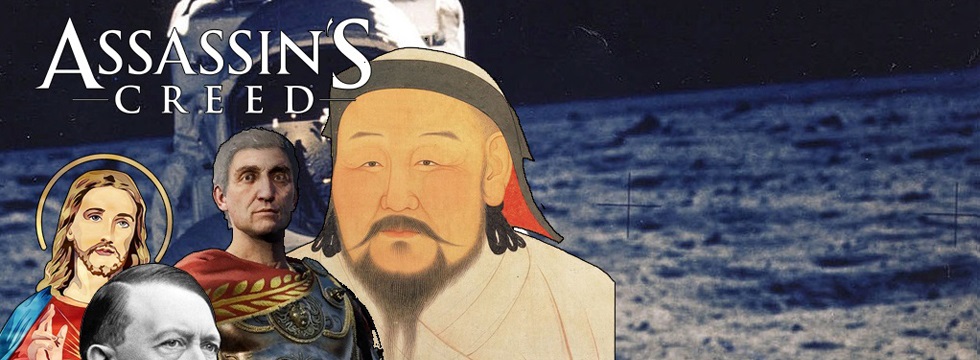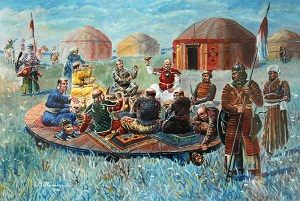Conquests of Genghis Khan. History according to Assassin's Creed

- History According to Assassin's Creed - Conspiracy Theorist's Paradise
- Peloponnesian War
- Adolf Hitler – Nazi puppet of the order
- Assassination of Caesar – Et tu, assassin, contra me?
- Jesus of Nazareth
- Conquests of Genghis Khan
- October Revolution – Stalin's secrets
- Apple on the Moon – the Apollo 11 mission
Conquests of Genghis Khan
When he came into this world, the great plains of Mongolia were inhabited by countless lineages, tribes and nations. When he had departed it, his nation was unified across the vast Eurasian empire, spanning from the Pacific in the east, to the Volga, the longest river of Europe, in the west. Genghis Khan was no doubt a monster – he killed his half-brother, massacred the entire population of Nishapur (present-day Iran) in revenge for the death of his daughter's husband, and before his own death ordered the execution of anyone who knew his resting place – his conquests, however, were truly the stuff of legends. So impressive that the creators of the Assassin's Creed universe decided there must have been something about it – and explained that with the Sword of Eden.
It was the artifact created by the First Civilization that was supposed to give the ruler of the Mongol Empire his extraordinary charisma, military skills and intuition of a true leader. The way he utilized these talents, however, was unacceptable to the Assassins. The protagonist of the first part of the games, Altair, therefore set out with his son to Xingqing, the capital of the Tangut people, besieged by the Mongols at the time. There, they joined forces with the local Assassin, Qulan Gaul. The city fell, but the Assassins managed to flush out Genghis Khan by setting his tent on fire. Qulan Gal then shot his horse, and Altair's son killed the Genghis Emperor with his crossbow. The Mongols retaliated three decades later – in 1257, they captured the Assassin stronghold at Masyaf.

The cruelty of the Mongols under Genghis Khan quickly became legendary. Before the empire, he set out on an expedition against the Tatars, most likely to avenge his father's death, and after defeating them, ordered the beheading of all the men taller than the axis of a horse-drawn wagon – about one meter. During one of his first excursions to Russia, after winning the Battle of the Kalka river, he trapped the enemy leaders under a huge platform, on top of which he held a great feast. The Mongol generals dined to the accompaniment of crushed bones. How much truth is there in these stories? Today, it's impossible to determine.
There are of course elements of truth in this scenario – minus ancient orders and paranormal artifacts. What's pretty much a fact is that in 1227, Genghis Khan and his army indeed besieged Xingqing (present-day Yinchuan) and he really didn't live to see it through. The Secret History of the Mongols, the oldest chronicle of this people, also states that he died by falling from a horse – but that was during a hunt, not a battle. There is also an alternative legend: according to it, the leader of the Mongol Empire was castrated with a hidden blade by a Tangut princess whom he tried to rape, and bled out. One way or another, he's one of the greatest conquerors in history; after his death, his Empire stretched over some fife thousand miles of land, reaching modern-day Poland.









